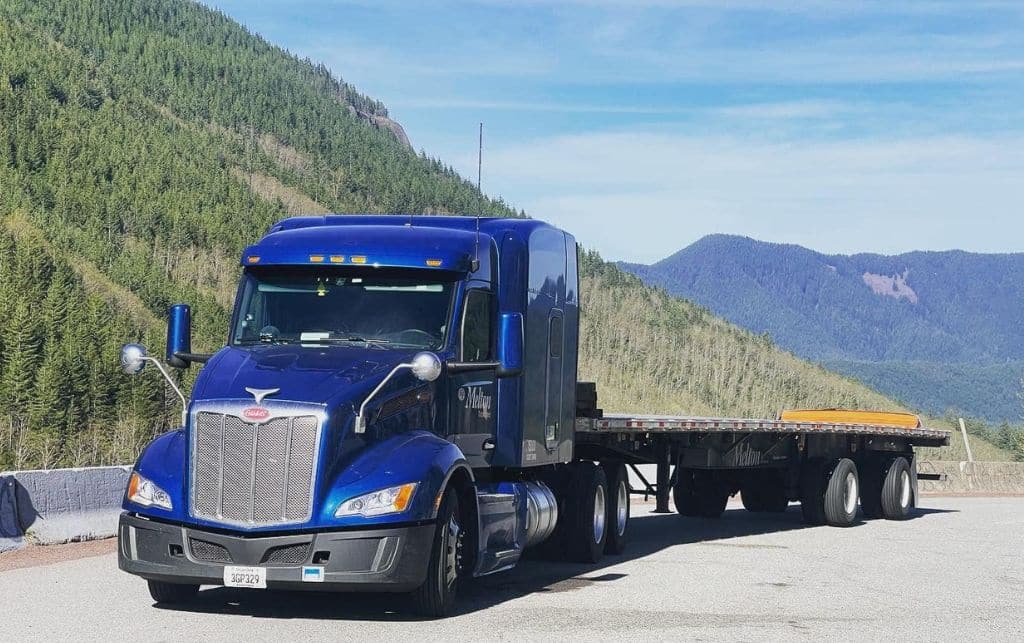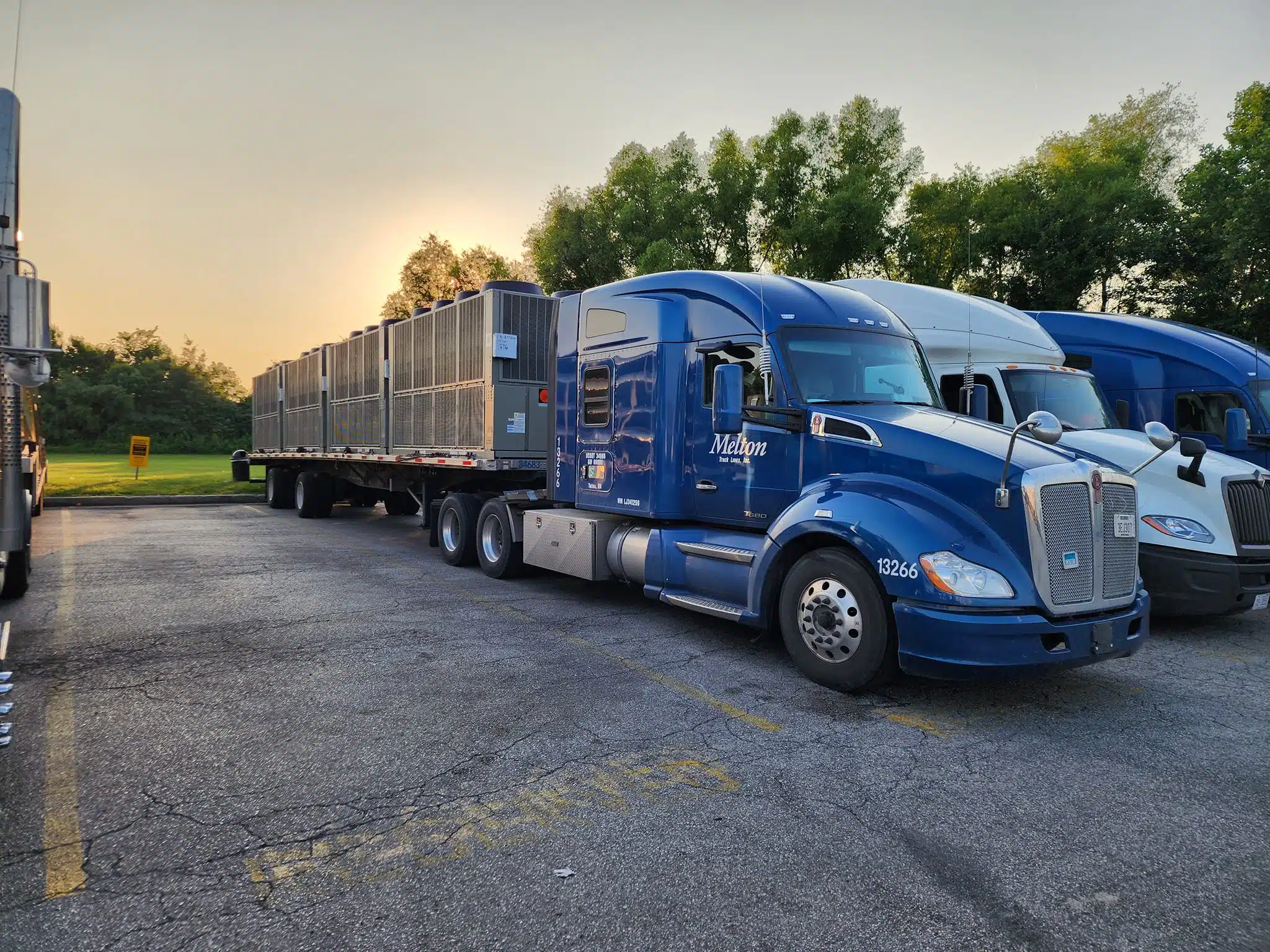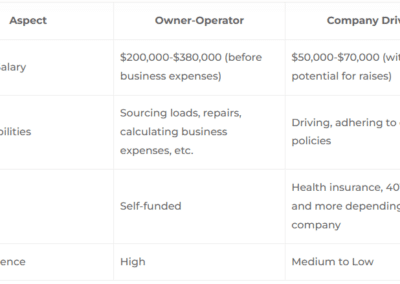
Owner Operators vs Company Drivers
There are two types of truck drivers that are often discussed in the industry: owner operators and company drivers. But what do these terms mean, and what’s the difference between owner operators and company drivers? We’ve explained what each type of trucking is, how much you can expect to make, and the pros and cons of each.
The Difference Between Owner Operators and Company Drivers
An owner-operator is someone who either owns or leases their own truck and is in charge of finding and transporting their own loads, and must also manage the other tasks required to run a business, including gas, maintenance, insurance, and more. A company driver is someone who is hired by a company to drive their trucks and haul their freight from place to place. Unlike an owner operator, your job is simply to drive. We’re providing more details about each below.
What is an Owner Operator?
There are a few different types of owner-operators that come with varying levels of independence and responsibilities:
- Lease Operator – Leases a truck from a company and hauls their freight. This is an in-between of an owner-operator and a company driver. While you’ll usually be left alone and are technically your own employee, you’re still dependent on a company for your loads.
- Lease-Purchase Operator – Leases or purchases a truck from a third party and then contracts with a company for loads. This will grant you more independence in choice of company, but it’s up to you to do your research and find the best owner-operator company for you.
- Independent Contractor – Purchases a truck and works independently of any company. This is what comes to mind when most people think of owner-operating. This provides you with the most freedom and highest potential for earning, but you’ll also be in charge of finding and vetting all your own loads.
How Much do Owner-Operators Make?
An owner-operator’s income can range from $200,000 to over $380,000 per year. This will be different from driver to driver, depending on market conditions, time spent on the road, and more. This salary is also before considering business expenses, but owner-operators generally end up with a higher take-home amount than company drivers.

Pros and Cons of Owner-Operating
Pros of Owner-Operating
- The biggest one for most is complete and total independence. Many see trucking as a very solitary career, and owner-operating is even more so. You can set your own hours, rates, and more.
- Another huge plus is the increased earning potential. Since you’re the one in charge of everything, 100% of profits go to you.
- Owner operators can haul whatever type of freight they choose, since they find the loads themselves.
- If you have an entrepreneurial spirit, this is an opportunity to start your own successful business. You can remain a solo driver, or purchase more trucks and hire more employees to start your own company.
Cons of Owner-Operating
- If an emergency happens to you or your family on the road, it’s your responsibility to figure out an alternative way to get your load delivered before you can head home.
- All the expenses that come with operating a truck are now up to you to budget. This includes fuel, insurance, repairs, unexpected tickets/fines, and more.
- Hunting loads is also up to you, which means if you can’t find a load in time or can’t find one you prefer, you might be hauling a load with a lower rate than usual, or a different type of freight than you’d prefer.
- Operating your own business means no company benefits like a 401k retirement plan, health insurance, or vacation time. It’s up to you to budget these expenses out of your earnings.
What is a Company Driver?
Just as there are multiple types of owner-operating, there’s a few different types of routes for company drivers:
- OTR Drivers – Over the road drivers will usually find themselves out for several weeks at a time, and will be hauling freight across the country and potentially across international borders.
- Regional Drivers – Will usually drive within a few adjacent states. They’ll usually be out for a week and return home on the weekends, although this could vary.
- Local Drivers – Will usually find themselves within the state or will briefly cross state lines. This type of driving will have you home every night, though your days could be long.
How Much Do Company Drivers Make?

This can also vary depending on the company you work for and the pay scale they follow, but the average is around $50,000 to $70,000 per year, with higher potential earnings as your time with a company increases. It’s less than what successful owner operators tend to make, but it’s also guaranteed.
Pros and Cons of Company Driving
Pros of Company Driving
- You won’t have to worry about any behind-the-scenes tasks. This means you won’t have to find your own loads, and coverage will be found for you in case of an emergency.
- Although it will vary slightly depending on miles driven and hours worked, pay will be largely consistent, even if you’re unable to drive due to delays or repairs. Expenses like gas and insurance also come out of the company’s wallet, not yours. Most of the money earned will be yours to keep!
- A benefits package will be included with most jobs, which means you and your family will be covered automatically and at a cheaper rate than an independent insurance company. Our truck driver’s benefits include health insurance, retirement options, pet/rider passes, and more.
- Your home time won’t be taken up by anything like recordkeeping or load hunting, so that time is yours to do what you please.
Cons of Company Driving
- Take home pay is generally less than what you’d make as an owner operator.
- Instead of making decisions yourself about how the company is run, you’ll need to adhere to any policies your company has in place.
- Hours worked will be largely out of your control after you decide what kind of driving you’d like to do. Situations may arise where you’re out for longer than you’d like or you’re stuck waiting for a load to come your way. While you’ll likely be compensated for your time (check out our blog about layover and detention pay), sitting idle is not ideal for a truck driver.
Summary: Owner-Operator vs Company Driver
| Aspect | Owner-Operator | Company Driver |
| Average Salary | $200,000-$380,000 (before business expenses) | $50,000-$70,000 (with potential for raises) |
| Responsibilities | Sourcing loads, repairs, calculating business expenses, etc. | Driving, adhering to company policies |
| Benefits | Self-funded | Health insurance, 401(k), PTO, and more depending on the company |
| Independence | High | Medium to Low |
Even with all this information, you may be wondering if you’re up to the task of being an owner-operator or want to give company driving a try. There’s no wrong answer to the question, but generally, those with less experience in driving and business or those who need reliable income are best suited for company jobs. If you’ve been driving for awhile and like a good challenge, or want to work for yourself and make money doing it, you might consider giving owner-operating a try! Melton Truck Lines hires OTR company drivers who are comfortable with flatbed trucking. If you’d like to learn more about your career options as a new driver, check out our new to driving page and learn more about OTR trucking!

